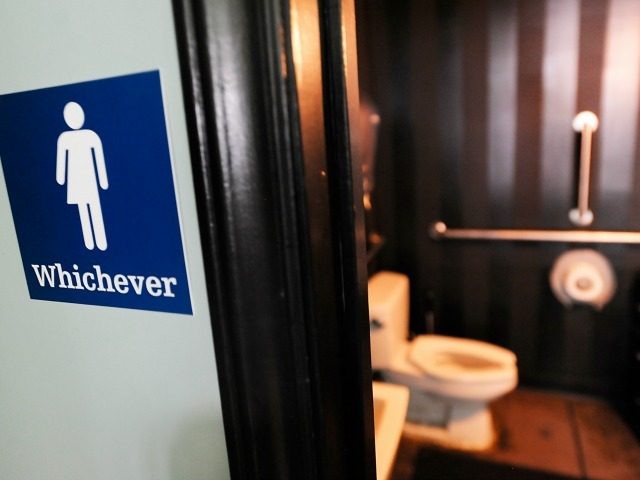Local governments in Orange County, North Carolina, are weighing this week the adoption of new special protections for individuals identifying as LGBTQ as a three-year state ban blocking further protections expires.
On December 1, a provision of House Bill 142, which voters approved to allow single-sex bathrooms and shower rooms to remain legal, expired. Municipal governments can now adopt further special protections for LGBTQ individuals.
With the ban now lifted, the towns of Carrboro, Chapel Hill, and Hillsborough – considered to be the most far-left in the state – have joined forces at the urging of groups such as Equality North Carolina to expand the special protections.
“As of December, a prohibition on any local governments passing non-discrimination ordinances expired,” Carrboro Mayor Lydia Lavelle said, according to a report at Chapelboro.com.
Lavelle explained further:
While there are no statewide protections covering certain groups of folks such as gay, lesbian and transgender people, local governments now are able to pass local ordinances. So, we have been organizing an effort among all of the jurisdictions in Orange County to come forward with all of our ordinances at the same time.
Framed as “anti-discrimination protections,” the towns will consider adding sexual orientation, gender identity, and gender expression as specially protected classes. The ordinances would make it illegal to “discriminate” in employment or in the provision of goods and services to the public on the basis of these class identifications.
The Associated Press noted that some of the towns’ proposals would make violators of the ordinances subject to misdemeanors and fines.
In a statement sent to Breitbart News, however, Tami Fitzgerald, executive director of the North Carolina Values Coalition, observed the local officials in Orange County are “hurriedly advancing, without proper public notice, unnecessary and unconstitutional ordinances so town councils can punish people and businesses that don’t hold to the ‘government view’ of sexuality.”
According to Lavelle, the ordinances will control behavior in public areas, such as stores, hotels, and restaurants, and in the area of employment.
Lavelle said the goal is to regulate as many different situations as she and the other elected officials could come up with:
Existing federal laws and existing state laws don’t cover every situation for every group of people. So, what we have tried to do in these laws we have drafted, at least for the Town of Carrboro, is we’ve tried to think of all of the different groups that are not currently covered under any laws that we have. We’ve tried to make the list pretty expansive.
A recent scorecard by LGBTQ advocacy organization the Human Rights Campaign rated Chapel Hill 86 out of 100 points on its 2020 Municipal Equality Index.
Chapel Hill Mayor Pam Hemminger said her town is committed to the concept of inclusion, and touted the recent availability of transgender healthcare.
“The town did a great job, we wanted to really concentrate on this,” she said. “We met last year and said ‘what do we still need to do’ – because the state still doesn’t have any guidelines here – and ‘what can we do to get a better score but also a better quality of life in Chapel Hill?’”
Fitzgerald, however, said the real intent “is to deprive citizens of their First Amendment rights to free speech and free exercise of their religious beliefs”:
The proposed broad-brush ordinances considered in Chapel Hill, Hillsboro, Carrboro, and Orange County this week will deny every self-employed entrepreneur, small business, church, and nonprofit organization the right to free speech and religious exercise, which are fundamental to the American system. Leaders have granted no protections for women in domestic abuse shelters, children attending summer camps, churches, religious nonprofits, or businesses operating within their sincerely held religious beliefs. Those God-given rights are recognized in the U.S. and North Carolina Constitutions and protected by the Supreme Court in the case of Masterpiece Cakeshop v. Colorado Civil Rights Commission in 2018.
Fitzgerald added the coalition will consider its legal options in challenging the ordinances.
“No one should be required by the government to violate their religious beliefs or change their speech as a condition to receive a benefit from a local government program or operate their business within the city limits,” she stated.

COMMENTS
Please let us know if you're having issues with commenting.